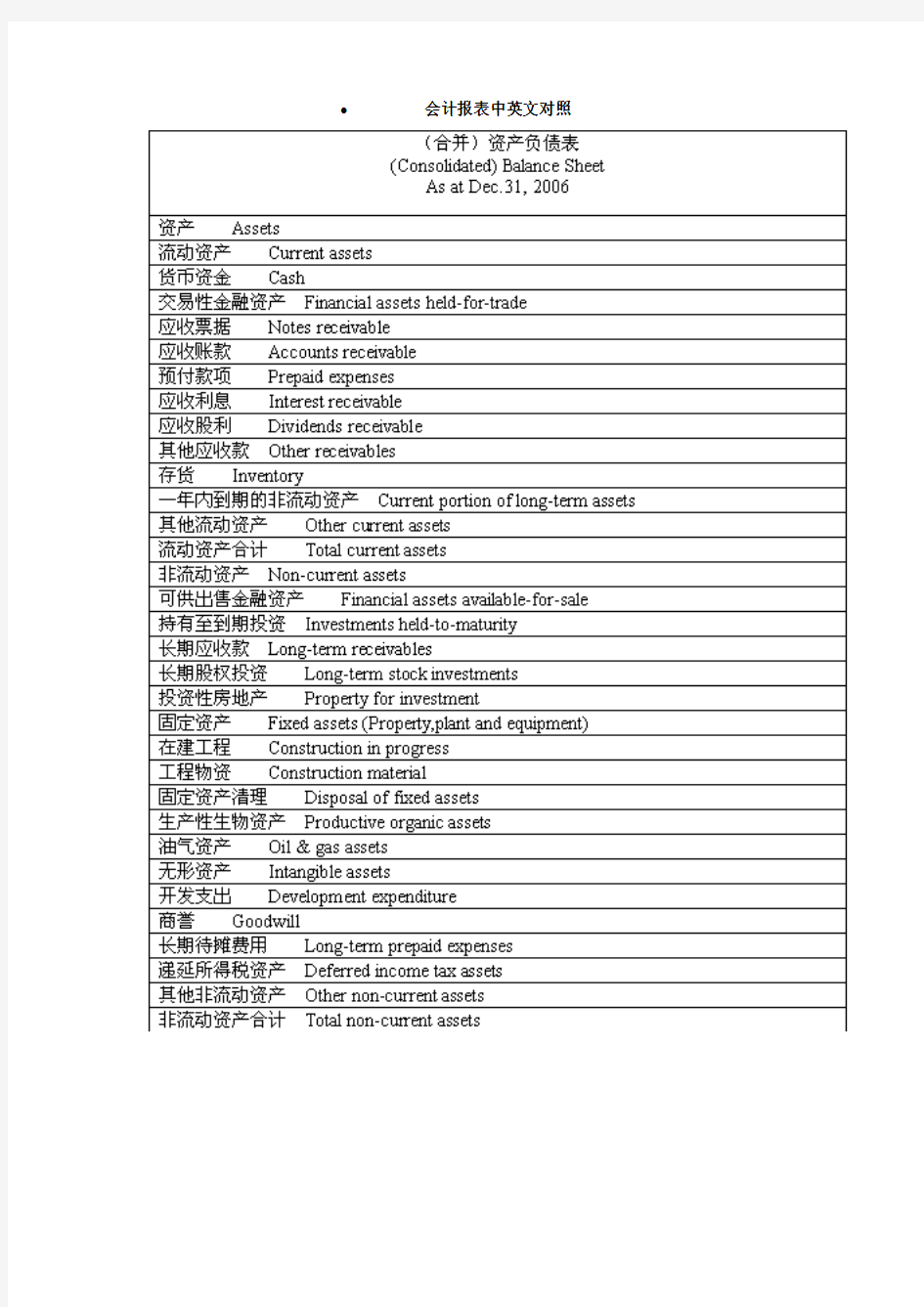(完整word版)会计报表中英文对照

- 1、下载文档前请自行甄别文档内容的完整性,平台不提供额外的编辑、内容补充、找答案等附加服务。
- 2、"仅部分预览"的文档,不可在线预览部分如存在完整性等问题,可反馈申请退款(可完整预览的文档不适用该条件!)。
- 3、如文档侵犯您的权益,请联系客服反馈,我们会尽快为您处理(人工客服工作时间:9:00-18:30)。
会计报表中英文对照
Accounting
1. Financial reporting(财务报告) includes not only financial statements but also other means of communicating information that relates, directly or indirectly, to the information provided by a business enterprise’s accounting system----that is, information about an enterprise’s resources, obligations, earnings, etc.
2. Objectives of financial reporting: 财务报告的目标
Financial reporting should:
(1) Provide information that helps in making investment and credit decisions.
(2) Provide information that enables assessing future cash flows.
(3) Provide information that enables users to learn about economic resources, claims against those resources, and changes in them.
3. Basic accounting assumptions 基本会计假设
(1) Economic entity assumption 会计主体假设
This assumption simply says that the business and the owner of the business are two separate legal and economic entities. Each entity should account and report its own financial activities.
(2) Going concern assumption 持续经营假设
This assumption states that the enterprise will continue in operation long enough to carry out its existing objectives.
This assumption enables accountants to make estimates about asset lives and how transactions might be amortized over time.
This assumption enables an accountant to use accrual accounting which records accrual and deferral entries as of each balance sheet date.
(3) Time period assumption 会计分期假设
This assumption assumes that the economic life of a business can be divided into artificial time periods.
The most typical time segment = Calendar Year
Next most typical time segment = Fiscal Year
(4) Monetary unit assumption 货币计量假设
This assumption states that only transaction data that can be expressed in terms of money be included in the accounting records, and the unit of measure remains relatively constant over time in terms of purchasing power.
In essence, this assumption disregards the effects of inflation or deflation in the economy in which the entity operates.
This assumption provides support for the "Historical Cost" principle.
4. Accrual-basis accounting 权责发生制会计
5. Qualitative characteristics 会计信息质量特征
(1) Reliability 可靠性
For accounting information to be reliable, it must be dependable and trustworthy. Accounting information is reliable to the extend that it is:
Verifiable: means that information has been objectively determined, arrived at, or created. More than one person could consider the facts of a situation and reach a similar conclusion.
Representationally faithful: that something is what it is represented to be. For example, if a machine is listed as a fixed asset on the balance sheet, then the company
